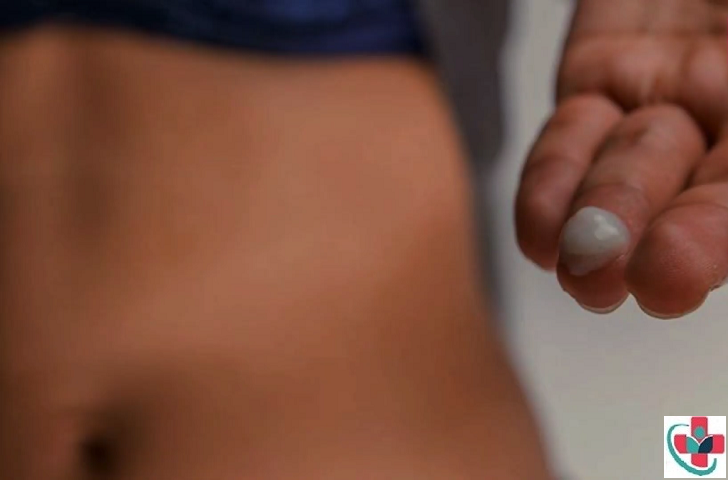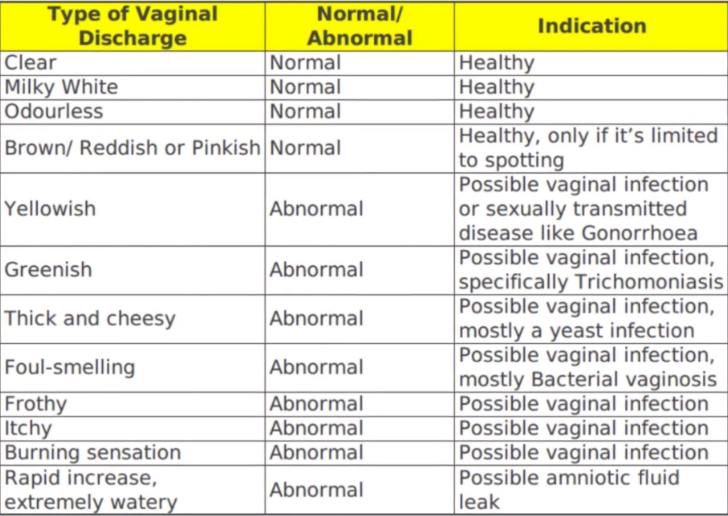{tocify} $title={Table of Contents}
In most cases, discharge from the vagina that resembles a jelly-like substance and is clear of any color is absolutely fine and a normal body process. However, there are certain scenarios when the discharge might indicate signs of infection or any other aspects to be examined. These are as follows:
- The vagina has a slight swelling in its region, which may or may not be accompanied by pain.
- When urinating, it irritates or itches a lot, or might even cause a burning feeling while passing urine.
- The discharge that occurs has a strong foul smell to it.
- The texture of the discharge is not free-flowing or thick. It resembles a curd or cheese-like substance and is uneven.
- The color is not white or off-white but has a grey tinge or even a greenish shade.
What Causes Jelly-Like Discharge during Pregnancy?
- Most of the reasons behind such discharges point towards two primary conditions. One of them is the elevation in the estrogen levels, while the other is a boost in the flow of blood down to the pelvic region.
- Both these conditions result in stimulating the mucus gland located in the cervix. It then begins to work more intensely than before, which results in a higher generation of mucus.
- This extraneous mucus doesn’t have a place to stay so it starts finding its way out of the vagina. While it flows out, it gathers with it any remaining mucus, old and dead cells of the vagina and cervix and other natural bacteria.
- All of these combine together to give the mucus a jelly-like texture.
Jelly-Like Discharge in the Third Trimester/End of Pregnancy?
In such scenarios, the body resorts to discharging the mucus plug from the vagina. This plug functions as a barrier that protects the uterus and the baby from any germs and infections, right at the initial stages of the pregnancy. Keeping the uterus closed is essential for the safe development of the fetus.
As you begin approaching the due date, the body begins to prepare for childbirth. Around completion of 36 weeks or so, the mucus plug is discharged and it appears out of the vagina in the form of a similar discharge. It may come out gradually like jelly or might come out completely all at once like a big blob, with a little blood on it. There’s no reason to worry about that.
When does Vaginal Discharge Indicate an Infection?
The discharge that occurs needs to be clear of any color and odorless. If it does have a foul smell accompanied by greyish or greenish colors, these are strong signs of an infection present in the vagina, which could be:
1. Yeast Infection
There are various fungi present in the vagina, which can at times, affect the microbes that are present in the entire region. Due to the multiple hormonal changes that the body undergoes during pregnancy, the various fluids that are present inside the vagina, start having a higher percentage of sugar in them as compared to the earlier states. Combined with a higher susceptibility to infection, the sugary presence provides a great latching ground for yeast, which results in a yeast-based infection taking over your vagina.
2. Bacterial Infection
There are good bacteria and bad bacteria present in the vagina. At times, infection due to the bad ones can cause harm to you as well as the baby. A certain bacterial infection is known to trigger labor quite earlier than optimal, leading to giving birth to a premature baby. This leads to a host of other complications and disorders that a baby might have to face. A history of premature births might signify the presence of this infection and it is best to get examined if you have faced the same before.
3. Infection Due to STDs
In case you have been sexually active in the early stages of the pregnancy, the chances of having contracted a sexually-transmitted disease are slightly higher than any other infection. Getting an STD test done for yourself and your partner should be the first point of action if you’ve had unprotected sex. STDs can not only lead to early labor and premature deliveries but can also infect the uterus after birth. Transferring the infections to the baby during your pregnancy can lead to the hindered development of the child. Babies born underweight, issues with eyesight or any other sensory perceptions, or acute brain damage are only a few conditions that a baby might face due to STDs.
Tips to Prevent Chances of Vaginal Infections during Pregnancy
- If you are sexually active during pregnancy, it is best that neither you nor your partner interacts with multiple sexual partners. This can help reduce the risks of contracting any STDs. If that isn’t a possibility, using protection should be your next best bet. Make sure you get yourself and your regular partners tested for STDs before proceeding.
- Many women wash the vagina repeatedly with water to keep it clean. Vaginas are self-cleaning and incessant douching can actually result in infection since it rids it of any healthy bacteria that ought to be present.
- Whenever you clean the vagina occasionally, make sure it is dried completely. Moist areas function as great breeding grounds for microbes leading to infections to thrive. If your vagina or the surrounding area stays wet, you are quite literally inviting infections to make it their home.
- Opt for comfortable clothing that isn’t tight in the crotch. Even your underwear should be a little loose and preferably made out of cotton. This helps in facilitating air circulation as well as absorbing any sweat, keeping the area dry.
- Cleaning after using the loo is something everybody learns in their childhood but many women do end up making a basic mistake. The hygienic way to clean your area is to wipe it from front-to-back and not the other way around. Wiping from back-to-front pretty much allows all the germs from the anal area to visit your vagina and infect it. Wiping the right way keeps the vagina free from such attacks.
- Women like their vaginas to smell nice all the time. There is a natural smell that they have, and these should not be changed by making use of any fragrances or deodorants. The chemicals in them can react adversely with the vaginal area, leading to irritation as well as make the area moist.
- Similarly, bubble baths should be avoided in this regard since the fragrant soaps come in direct contact with the vagina, irritating it or making it susceptible to infections.
During pregnancy, even the smallest change in your body could indicate a large change happening internally. Having a clear jelly-like discharge during early pregnancy isn’t always a problem. But observing it well and looking for anything out of the ordinary can help you avoid chances of letting an infection grow.


